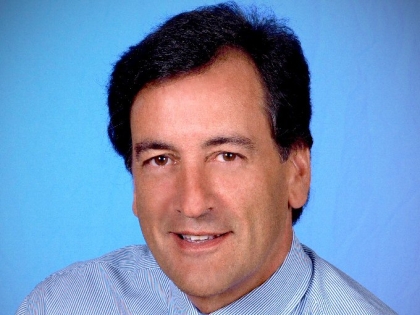
Senate Passes Fuschillo Legislation to Strengthen Leandra’s Law
Charles J. Fuschillo Jr.
May 22, 2012
-
ISSUE:
- Drunk Driving
Senator Charles J. Fuschillo, Jr. (R-Merrick) today announced that the New York State Senate has passed legislation he sponsors to strengthen Leandra’s Law. The legislation would ensure that offenders comply with the provision of the law requiring them to use ignition interlocks.
“Ignition interlocks prevent drunk drivers from getting behind the wheel and have saved an untold number of lives. That’s why we included them under Leandra’s Law. However, nearly 70 percent of the drunk drivers ordered to use interlocks are not doing so; that needs to change. Strengthening Leandra’s Law would ensure that convicted DWI offenders receive alcohol monitoring to ensure that they do not drive drunk again. I applaud the Senate for passing this legislation and urge the Assembly to approve it as well,” said Senator Fuschillo, Chairman of the Senate’s Transportation Committee and a sponsor of Leandra’s Law.
Leandra’s Law was passed in 2009 following the tragic death of 11 year old Leandra Rosado, who was killed while riding in a car driven by her friend’s intoxicated mother. As part of Leandra’s Law, all convicted DWI offenders must install and use an ignition interlock in all vehicles they own or operate for a period of at least six months after their DWI conviction. Ignition interlocks are breath test devices linked to a vehicle’s ignition system which prevent the car from starting if alcohol is detected in the driver’s breath.
However, many drunk drivers try to avoid the ignition interlock requirement by claiming they do not own or operate a vehicle, waiting for the interlock period to run out, and then reapplying for a license without ever having to use the interlock. Some of these drivers temporarily transfer ownership of the car to a relative or friend, who then allows that person to drive it without an interlock.
“A drunk driver took Leandra away from me forever, and not a day goes by that I don't feel the pain of losing her. We fought so hard for Leandra's Law to save lives and spare other families from feeling that same pain. We'll fight even harder to keep drunk drivers from getting around Leandra's Law. I thank Senator Fuschillo and the State Senate for passing this legislation and hope it will become law," said Lenny Rosado, Leandra's father.
Far too many drunk drivers are escaping the interlock requirement through this loophole. Although over 7,100 drunk drivers installed interlocks between the start of the interlock requirement on August 15, 2010 and December 31, 2011, they account for only 31 percent of the offenders who were ordered to do so, according to the New York State Division of Criminal Justice Services.
As part of a sweep last summer targeting convicted drunk drivers who try to avoid the ignition interlock requirement, the Nassau County District Attorney’s office arrested twenty offenders in two weeks for illegally driving without a court-ordered ignition interlock. Many of these offenders were arrested after illegally driving to meet their probation officers.
"Convicted drunk drivers have proven themselves to be a danger to every innocent motorist and pedestrian on our streets, and every possible precaution must be taken to ensure that they do not reoffend," Nassau County District Attorney Kathleen Rice said. "Ignition interlocks save lives and we need to ensure convicted drunk drivers use them. I applaud the Senate for its commitment to strengthening Leandra's Law."
The legislation sponsored by Senator Fuschillo (S6636), would help strengthen Leandra’s Law by:
• Clarifies that offenders must install ignition interlocks on any car they own or operate or the car they used to commit the DWI offense. Offenders would not only be required to install and maintain an interlock, they would also be prohibited from driving without one;
• Requiring offenders who demonstrate good cause for not installing any interlock to instead wear a transdermal alcohol monitoring device, such as an ankle bracelet, which would detect whether the offender has been consuming alcohol in violation of their sentencing conditions. As with the interlock, the costs of installing and maintaining the device would be borne by the offender;
• Preventing offenders from getting a license without fulfilling either the interlock or transdermal alcohol monitoring device requirement. This would ensure that offenders cannot avoid alcohol monitoring, eliminating a major incentive to try and evade the interlock requirement;
• Requiring DMV to receive specific authorization to remove the interlock restriction; it would not automatically be removed after 6 months;
• Making it clear that failing an interlock is a violation of the offender’s sentencing conditions;
• Creating felony charges for convicted DWI offenders who drive drunk again while holding a conditional license.
"Drunk driving is not a game," said Tom McCoy, MADD LI Executive Director. "As long as there are ways for offenders to treat their sentence as a game they can manipulate, none of us are going to be safe from the tragedies drunk drivers create. We need to make Leandra's Law what it was meant to be - that is a way to protect us from those who drink and drive by putting an interlock in the car they have access to."
The legislation has been sent to the Assembly for consideration.
Share this Article or Press Release
Newsroom
Go to Newsroom
